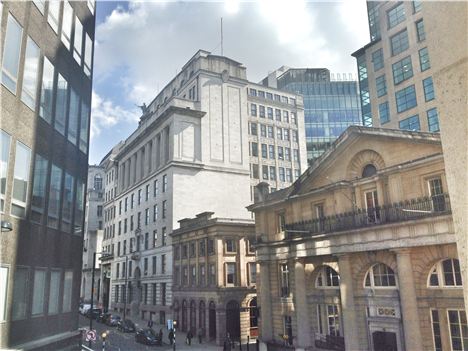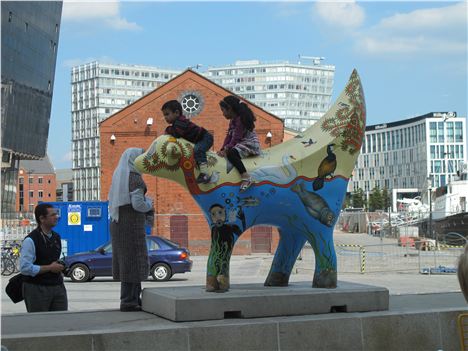LIVERPOOL is hosting leaders of some of the world’s biggest cities to discuss and share ideas on devolution and growth.
According to the OECD, the level of taxes managed at the local or regional level is about 10 times greater in Canada, 7.5 in the US, 7 in Sweden, almost 6 in Germany, and over 5 times greater across the OECD on average.
All eight of the English Core Cities (explained below) are attending the BT Global City Leaders Summit that brings together more than 300 city leaders and senior members of local government.
World renowned cities such as Shanghai, Istanbul, Mexico City, Santiago and New Delhi will be exchanging ideas and visions with the Core Cities Cabinet on the key role cities can play in promoting economic growth, rebalancing the economy and delivering for local communities.
International cities, such as Paris, Berlin and Barcelona, have enjoyed huge amounts of economic success due to having the policy and tax freedoms to boost their local economies. Comparatively, England’s Core Cities are being hindered by central Government retaining control over 95% of funds raised locally.
Birmingham Alabama for example, who are attending the Summit, retain a lot more locally raised taxes than Birmingham UK. According to the Organisation for Economic Co-operation and Development (OECD), the level of taxes managed at the local or regional level is about 10 times greater in Canada, 7.5 in the US, 7 in Sweden, almost 6 in Germany, and over 5 times greater across the OECD on average.
Liverpool Mayor, Joe Anderson will lead a working lunch with specially invited senior guests from major UK and overseas cities, and Lord Heseltine, the former deputy Prime Minister. The discussion will focus on the powers that cities need to help drive economic growth.
Liverpool skyline
Core Cities’ urban areas already deliver 27% of the English economy and are home to 16 million, yet they underperform by the standards set by some of today’s international visitors. This is because, currently, cities only retain about 5% of the total tax base raised in them, which is damaging their economic potential.
Greater freedom to decide how to spend the money generated in cities, such as property taxes, would help the Core Cities meet their target of outperforming the national economy, and becoming financially self-sustaining. Independent forecasts demonstrate this could mean an additional £222 billion and 1.3 million jobs for the country by 2030. That is like adding the entire economy of Denmark to the UK.
 Back in 1889 Manchester controlled its own money and was one of the most important cities in the world
Back in 1889 Manchester controlled its own money and was one of the most important cities in the world
Joe Anderson, Mayor of Liverpool speaking from the event said:
"Cities are engines of growth and they are critical to the global economic recovery. At this summit we will debate the powers and responsibilities our cities need to deliver the best economic future for our communities.
“Important leaders from major cities across the UK will join us in Liverpool, to exchange ideas with the international cities attending today that could help us all in giving our cities the freedoms they need to grow. This is very much a two way street with the Core Cities sharing ideas and concepts, as well as hearing about ones that have worked overseas.”
Sir Richard Leese, Leader, Manchester City Council and Chair, Core Cities Cabinet said:
"This Summit is a great opportunity to highlight the success devolution can bring. You only have to look at the success a city like Barcelona has achieved by being given the freedom to make decisions based on local need and circumstance.
“England’s cities need to be given the powers they need to compete or we will fall behind the international cities visiting today.”
King Street, Manchester
United Cities and Local Government president and Mayor of Victoria, Seychelles, Jacqueline Moustache-Belle said:
“For over a hundred years, the spirit of the municipal movement has been to promote learning and create the conditions to better serve the citizens, but also to bring the experience of local and regional leaders to the international debates. Towns and regions must have a strong presence and role in the new global governance.”
Mayor of Istanbul and UCLG co-president Dr Kadir Topbas, said:
“Urbanisation is underpinned by the concentration of investment and the economies of agglomeration that cities offer to many enterprises are well-known. However, what are perhaps less recognised are the many economies of agglomeration that cities provide for most forms of infrastructure and service. Sound management of these services is central to their capacity to support growth, prosperity and equality.”
Cities represented at the summit include: Istanbul, Shanghai, Paris, Barcelona, Rabat, Berlin, Vienna, Beijing, Glasgow, Surabaya, Seoul, New Delhi, Buenos Aires, Sao Paulo, Santiago, Montreal, Mexico City, Birmingham (Alabama), Johannesburg, Rabat and Dakar, as well as all English Core Cities.
At play on the Pierhead, Liverpool
What are the 'Core Cities'?
The Core Cities consist of: Birmingham, Bristol, Leeds, Liverpool, Manchester, Newcastle, Nottingham and Sheffield.
The Core Cities recently released a Growth Prospectus which can be read online here.
Property taxes consist of: council tax, business rates, stamp duty land tax, annual tax on enveloped dwellings and capital gains property disposal tax.
The Core Cities form a local authority voice to promote the role of their cities in driving economic growth. They represent the councils of England’s eight largest city economies outside London. The Core Cities Group has a track record of 15 years as a cross party group, led by the City Leaders.
The BT Global City Leaders Summit is part of the UK’s inaugural International Festival for Business 2014 (IFB) hosted in Liverpool and the city region over 50 days in June and July.














